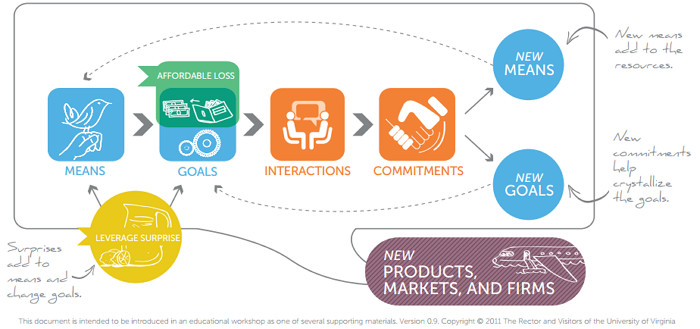Technology, strongly permeates our lives, it affects the way and the times in which we communicate, buy products, inform, socialize, control our diet or check our health.
Today entrepreneurs, although not working in the digital domain, are finally realizing that to remain competitive, they must fully understand the technological revolution under way and equip themselves with tools capable of exploiting those opportunities; this is especially true in the presence of resource scarcity scenarios, economic crisis or high competition, as today.
A concrete help comes from studies conducted by Saras D. Sarasvathy, professor at the Darden School of Business at the University of Virginia.
At the turn of the new millennium he has worked with twenty-seven experienced entrepreneurs, founders of companies with turnovers far exceeding the hundreds of millions of dollars. Dr, Sarasvathy has subjected them with a series of tests, questionnaires and cases to solve, which aimed to understand how these people approached to problems and how they tried to solve them.
What emerged is they all possess a particular inclination, called “effectuation“.
Actually their decision making process relies on a very specific framework, based on the following cycle:

Every decision is based on these five principles:
- Start from who your are and your own means. Carefully evaluate themselves, what they have, their education, experience and knowledge; develop ideas and solutions using the means at their disposal.
- Loss bearable. In deciding the objectives and in addressing the next steps towards the realization of the idea, they think of what the maximum sustainable economic loss for them is, at that precise moment.
- Factor surprise. They are people fully dedicated to action; exploit any emerging information from the field, positive or negative, as a confirmation of the direction or inspiration for improvement, or even as an element that can bring out new needs of the market.
- Create new Partnership. They talk about their ideas with the people they meet, seeking for feedback, shaping their thoughts according to the feedback received. They create effective partnerships with those who demonstrate interested, which, in turn, provide new means and resources of the project.
- Build your own future. Focusing their attention on activities and resources that are under their direct control, these entrepreneurs build their future day after day, empirically, instead to grope or predict it or, even worse, accept it passively as immutable.


